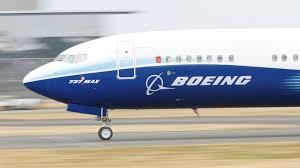
Boeing has agreed to plead guilty to fraud in a significant legal settlement with the US Department of Justice related to two fatal crashes of its 737 MAX aircraft, court documents revealed on Monday. The agreement follows a determination by prosecutors that Boeing had violated a previous settlement deal linked to the disasters in Ethiopia and Indonesia that claimed 346 lives over five years ago.
In a statement to AFP, Boeing confirmed the agreement in principle, pending finalization of specific terms. According to court filings in Texas, Boeing will plead guilty to “conspiracy to defraud the United States” during the certification process of the 737 MAX airplanes. As part of the deal, Boeing will face fines and commit to investing at least $455 million in compliance and safety programs. The court will determine compensation for the families of the crash victims.
The aviation giant’s latest legal entanglement stemmed from the Department of Justice’s finding in mid-May that Boeing had failed to meet requirements set out in a 2021 deferred prosecution agreement (DPA), which was intended to enhance its compliance and ethics program following the MAX crashes.
Reacting to the settlement, families of the MAX crash victims expressed deep disappointment. Robert A. Clifford, senior partner at Clifford Law representing the families, criticized the plea agreement, alleging Boeing’s continued prioritization of profits over safety. The families plan to challenge the deal at an upcoming court hearing.
The original DPA, announced in January 2021, had resolved charges that Boeing knowingly misled the Federal Aviation Administration during the MAX certification process. It included a $2.5 billion payment for fines and restitution and provided immunity from criminal prosecution for Boeing.
However, Boeing faced renewed scrutiny earlier this year when a 737 MAX operated by Alaska Airlines experienced a mid-flight emergency due to a fuselage panel issue. In a letter to the court dated May 14, DOJ officials asserted that Boeing had breached its obligations under the DPA by failing to establish an effective compliance and ethics program to prevent and detect fraud across its operations.
Sources By Agencies


